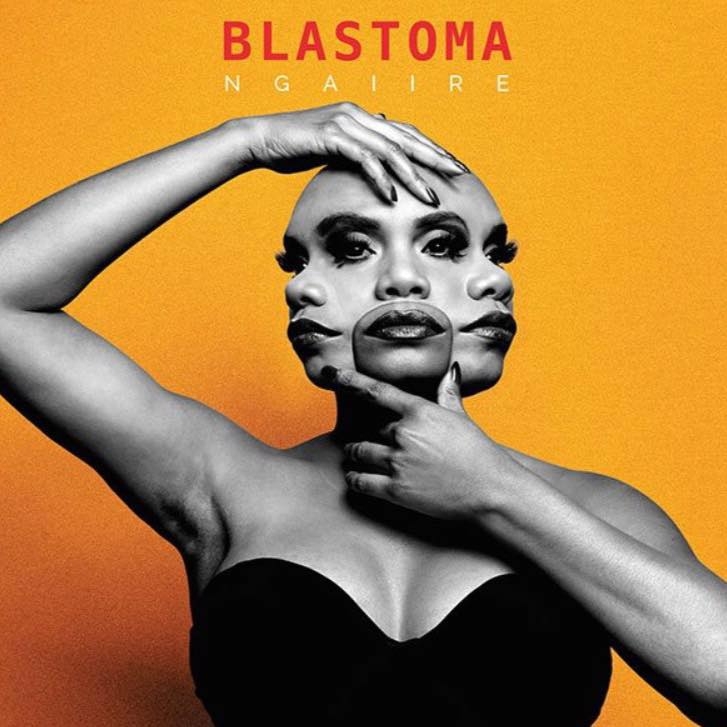Anchor begins with a rumbling bass loop, with drum sounds rising rapidly out of the muddy mix. A single synth note and a hoarse, unintelligible vocal moves quickly across the stereo spectrum, forewarning something – possibly menacing, and decidedly interesting. It says a lot that this is how Ngaiire decides to open her second album, Blastoma. Named after a form of cancer that the Papua New Guinean born singer battled at a young age, there is a sense of self-assurance, even dignity, to the music contained within.
Much thought has gone into the execution of this collection, presumably taking shape over the three years since Lamentations, and producers/co-writers Paul Mac and Jack Grace deserve praise for the album’s measured consistency. Once, released as a single in 2015 and included here, is one of those rare songs that has a certain indefinable quality to it. When the trends and musical conventions of today are outmoded there is no doubt that this song will still sound incredible. The beat stays constant throughout the track’s five-minute duration, while the rest of the instrumentation is quite sparse, allowing the vocal delivery to be the focus. The melody is just gorgeous and Ngaiire never over-sings it, building emotion throughout her performance.
This sparseness is typical of the record, with most tracks featuring Ngaiire’s voice prominent in the mix, and very simple electronic rhythmic and synth elements holding the tracks together.
Cruel, a duet with Grace, continues this approach, showing that pop music does not always need bombast to create very catchy hooks. The understated delivery of both singers manages to communicate the melancholic nature of the lyric, while the deceptively major key melody lines dig into your ears.
Fall Into My Arms, a gospel-style piano and group harmony ballad that has been a memorable part of her shows over the last year, is a fitting album closer. It also serves as a reminder that, although Ngaiire utilises elements of electronic music throughout Blastoma, she is at home amongst acoustic-based instrumentation. Her voice is powerful and capable of beauty, but she uses it here without any theatrics, communicating instead raw emotion and soul.
By Alex Watts

